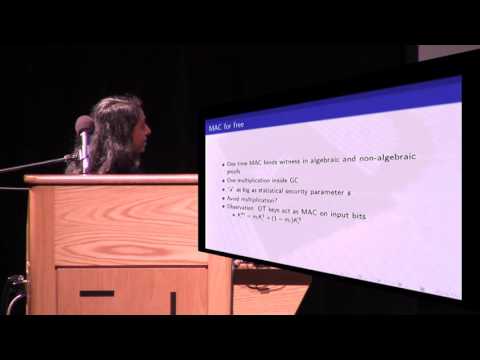Welcome to the resource topic for 2016/583
Title:
Efficient Zero-Knowledge Proof of Algebraic and Non-Algebraic Statements with Applications to Privacy Preserving Credentials
Authors: Melissa Chase, Chaya Ganesh, Payman Mohassel
Abstract:Practical anonymous credential systems are generally built around sigma-protocol ZK proofs. This requires that credentials be based on specially formed signatures. Here we ask whether we can instead use a standard (say, RSA, or (EC)DSA) signature that includes formatting and hashing messages, as a credential, and still provide privacy. Existing techniques do not provide efficient solutions for proving knowledge of such a signature: On the one hand, ZK proofs based on garbled circuits (Jawurek et al. 2013) give efficient proofs for checking formatting of messages and evaluating hash functions. On the other hand they are expensive for checking algebraic relations such as RSA or discrete-log, which can be done efficiently with sigma protocols. We design new constructions obtaining the best of both worlds: combining the efficiency of the garbled circuit approach for non-algebraic statements and that of sigma protocols for algebraic ones. We then discuss how to use these as building-blocks to construct privacy-preserving credential systems based on standard RSA and (EC)DSA signatures. Other applications of our techniques include anonymous credentials with more complex policies, the ability to efficiently switch between commitments (and signatures) in different groups, and secure two-party computation on committed/signed inputs.
ePrint: https://eprint.iacr.org/2016/583
Talk: https://www.youtube.com/watch?v=m8mFljjQjiY
See all topics related to this paper.
Feel free to post resources that are related to this paper below.
Example resources include: implementations, explanation materials, talks, slides, links to previous discussions on other websites.
For more information, see the rules for Resource Topics .
